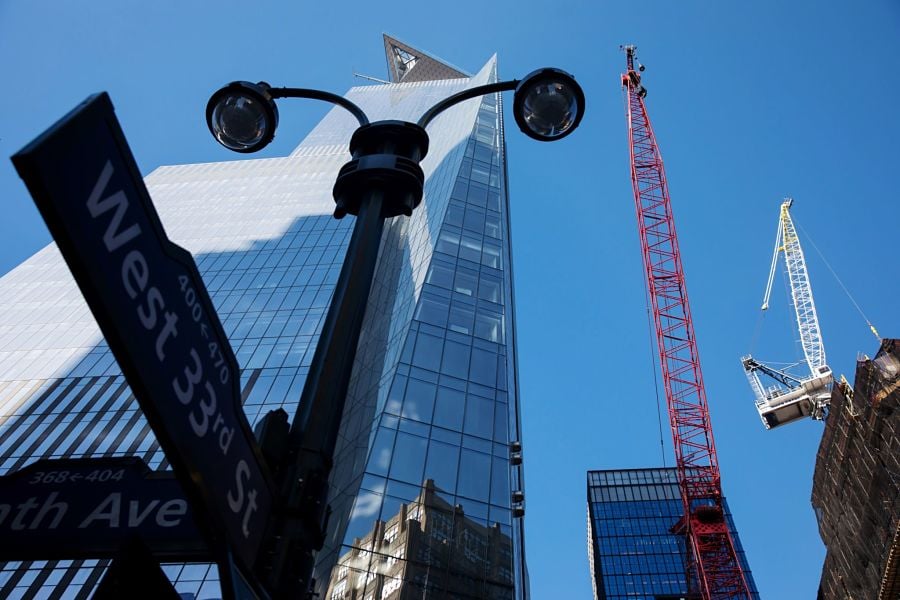

Voya Financial Advisors is the latest broker-dealer to halt, at least for now, the sale of real estate investments with limited liquidity, including so-called net asset value real estate investment trusts and interval funds.
My take is that while big firms have concerns about real estate values deteriorating amid the COVID-19 pandemic, they are also still smarting from the fallout from the 2008 market crash, which sent the values of many illiquid or nontraded REITs into a dangerous tailspin. That was a disaster for the securities industry and for thousands of retail investor clients. The financial advice industry and its advisers don't want another such flameout in 2020.
Back in 2008-2009, some brokers, chasing hefty commissions of 7%, continued to sell REITs, arguing that the value of commercial real estate could never go down. Clients, hungry for the promised high yields and low risk, chose to believe them.
Dozens of small to midsize broker-dealers eventually went out of business as a result of costs from lawsuits and investor complaints stemming from the sale of illiquid investments. Those included private placements that failed and nontraded REITs that sold for $10 per share in the years prior to the Great Recession but later saw their prices fall by 30% to 50%. In some even more dire cases, the bottom fell out of the REITs completely.
In the wake of the Great Recession, large firms paid millions in legal fees and settlements to make the investor complaints go away. Many firms also saw their reputations and share prices take a severe hit.
Broker-dealers that have restricted the sales of hard-to-value real estate products are acting out of an abundance of caution. The plaintiff's bar, a thorn in the side of the securities industry, has been sitting on its hands the last few years as the broad stock market continued what looked to be a never-ending climb until its collapse in February and March.
Attorneys who sue broker-dealers look for the collapse of a specific product that use an esoteric trading strategy or a type of product. REITs and interval funds fit that second category to a tee.
Voya Financial Advisors joins LPL Financial, Cetera Financial Group and Advisor Group in shutting down sales of such real estate products for a while to see what happens to the commercial real estate market in the coming months.
As Voya said in a recent memo to its advisers, “We believe this is the right decision because of the negative impact the current pandemic is having on economic conditions, and particularly real estate assets, in the U.S.
“As investors in these funds attempt to reallocate capital to lower risk investments or seek liquidity due to their personal financial situation this could become another potential concern as investor liquidity could be limited,” according to the memo. The suspension at Voya will last at least until the end of June.
The big kahuna in the REIT marketplace, and one of the REITs that some firms have stopped selling amid concerns about falling real estate values, is the $34 billion Blackstone Real Estate Income Trust.
Launched in 2017, the REIT is sold widely by large and small firms. It hit a bump at the end of March when it reported a decline of more than 8% and a NAV of $10.44 per share for its I class shares, which are sold by fiduciaries like registered investment advisers. That compares to its per-share NAV of $11.42 at the end of February.
It's important to note a key difference in the nontraded REIT market now compared to during the Great Recession. Today's NAV REITs have a price that moves up or down with the market. The old nontraded REITs were sold at the static, unrealistic price of $10 per share, regardless of fluctuations in the value of the buildings in the portfolio.
"All the broker-dealers are concerned, in one way or another, that the market sell-off has been sudden, and the REITs and interval funds ultimately have not yet had price discovery," said one industry executive, who asked to remain anonymous.
"The challenge for daily NAV REITs is that the values are not reflective of changes in the marketplace," the executive said. "The securities will eventually reprice."
The questions hanging over the marketplace for such real estate products is how long the downward pressure on values will last, and where values will bottom. The brokerage industry hopes this downturn does not look like the last one.

Relationships are key to our business but advisors are often slow to engage in specific activities designed to foster them.

Whichever path you go down, act now while you're still in control.

Pro-bitcoin professionals, however, say the cryptocurrency has ushered in change.

“LPL has evolved significantly over the last decade and still wants to scale up,” says one industry executive.

Survey findings from the Nationwide Retirement Institute offers pearls of planning wisdom from 60- to 65-year-olds, as well as insights into concerns.
Streamline your outreach with Aidentified's AI-driven solutions
This season’s market volatility: Positioning for rate relief, income growth and the AI rebound
